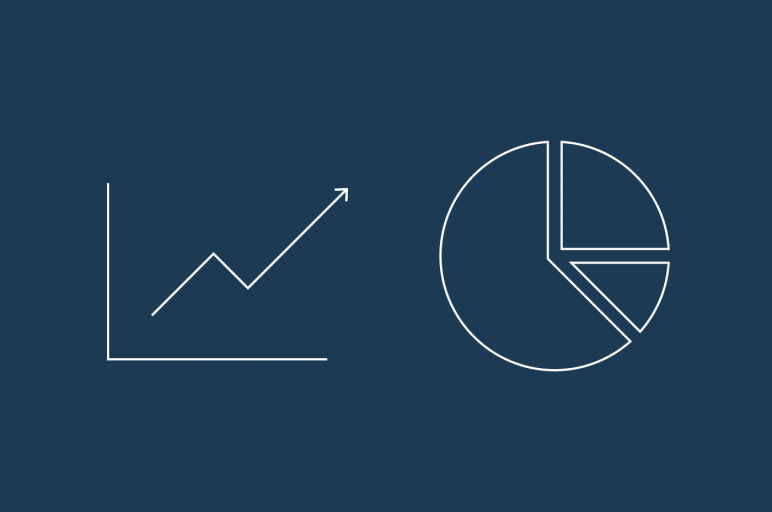There’s been good news for Australian ETFs, with ETF issuers reducing their fees over the last few years. This ‘fee war’ was something we flagged as possible since publishing our first ETF Research Report in 2015.
Fee competition between ETF issuers is a great thing for investors as it means more of the return passed on to them rather than kept by the ETF issuers.
BetaShares’ launch of a low-cost Australian shares ETF in 2018 put the other issuers on notice to review their own fees. Vanguard announced in July 2019 it has reduced its annual management fee on the Vanguard Australia Shares ETF (VAS) from 0.14% to 0.10%. At the time of the announcement, VAS had $3.7 billion under management which has since steadily increased to $12.5 billion as of January 2023. As a result of the fee reduction, investors in VAS (including Stockspot clients) have saved $12 million in fee costs since the announcement.
We continue to recommend VAS to clients because of its large size, low cost, and broader exposure to more companies in the Australian market.
BlackRock iShares soon followed suit by reducing the fee on their indexed Australian shares ETF, the iShares Core S&P/ASX 200 ETF (IOZ) from 0.15% to 0.09%. The ETF has again come into the headlines, as BlackRock iShares sliced the fee of IOZ from 0.09% to 0.05% in February 2023.
| CODE | ETF NAME | OLD FEE (2022) | NEW FEE (2023) | SAVINGS |
| IOZ | iShares Core S&P/ASX 200 ETF | 0.09% | 0.05% | 0.04% |
| VAS | Vanguard Australian Shares Index ETF | 0.10% | 0.10% | – |
| STW | SPDR S&P/ASX 200 ETF | 0.13% | 0.13% | – |
| A200 | BetaShares Australia 200 ETF | 0.07% | 0.04% | 0.03% |
| MVW | VanEck Australian Equal Weight ETF | 0.35% | 0.35% | – |
Coinciding with this was BlackRock reducing the fee on its Australian bond ETF, the iShares Core Composite Bond ETF (IAF) from 0.15% to 0.10% in February 2023, after originally reducing it from 0.20% to 0.15% in April 2020. IAF had $1.8 billion in funds under management as at February 2023, meaning this fee reduction will save investors $880,000 per year. IAF is the Australian bond ETF we recommend to our clients.
State Street Global Advisers (SSGA) reduced the fee on its SPDR S&P/ASX 200 Fund (STW) ETF in March 2020 from 0.19% to 0.13%.
However, the clear cost leader remains the BetaShares Australia 200 ETF (A200), which in February 2023 responded to IOZ’s fee cut by reducing its management fee from 0.07% to 0.04% to retain its position as the lowest-cost Australian shares ETF. At this fee level, A200 only earns around $1 million in annual revenue from investors based on it’s current assets of $2.6 billion. On average, BetaShares has some of the higher fee ETFs available in Australia so it’s possible that A200 is being positioned as a price-leader in this category to build brand awareness of BetaShares and allow the business to introduce other products to investors.
Investors moving to low-cost indexers
Low-cost index ETFs continue to attract the majority of investor money. VAS caught up to STW in quick succession and now A200 is gaining strong traction in its short history.
The State Street-owned SPDR S&P/ASX 200 ETF (STW) was forced to follow suit with a fee reduction to remain competitive, after leaving its fee unchanged for many years.
Their late inaction has proved costly, as we discussed in our 2019 ETF Research. Betashares knocked SPDR out of third spot in the race for the largest ETF provider. STW has only seen $128 million in net flows over the past 12 months compared with VAS which took in $2.4 billion.
Lower-cost ETFs have provided better returns
As part of our 2022 ETF Research, we found that lower-cost index ETFs continue to deliver better performance than expensive peers.
| ETF Fee Tier | Number of ETFs | Median 5-Year Returns (p.a.) |
| Less than 0.25% | 47 | 10.2% |
| 0.25% to 0.49% | 95 | 8.7% |
| 0.50% to 0.74% | 65 | 7.2% |
| 0.75% to 0.99% | 32 | 7.3% |
| 1% and over | 27 | -4.6% |
This is why we continue to advise clients to stick with the boring but brilliant low-cost indexes rather than be tempted by higher-cost alternatives.
Lower ETF fees benefit you
As the ETF market continues to grow, ETF issuers will have more opportunity to pass on lower costs to their investors. This has happened in other parts of the world like the United States where some S&P 500 funds now charge just 0.02% p.a.
Costs are one of the few things you can control as an investor.
Fees are like termites, nibbling at investors’ returns each day, so the more ETF issuers can exterminate these termites the better it is for more investors.




